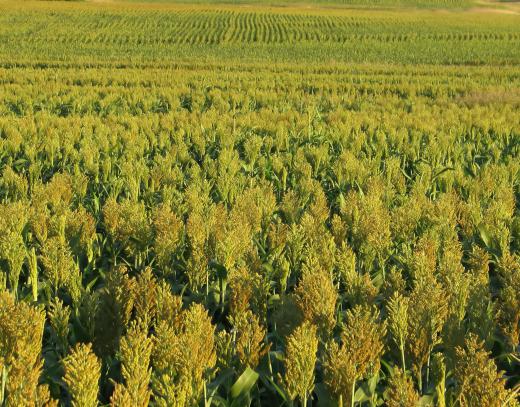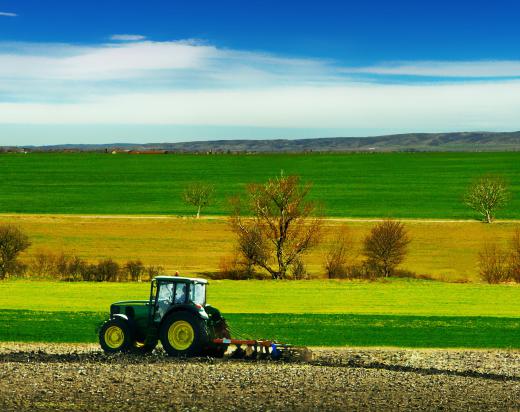Crop farming is the cultivation of plants for food, animal foodstuffs, or other commercial uses. A variety of techniques including organic production methods can be used to manage crops. People may enter this career through a family business, by training on a farm with experienced farmers, or by attending college to get a degree in agriculture or a related subject. It can involve long hours and harsh working conditions, along with unpredictable profits from year to year, which can be stressful for farmers.
The types of crops grown can depend on environmental conditions, market demands, and preference. Some crops have a limited growth range dependent on temperatures, available water supply, pests, and other factors. Others may be cultivated in a wider range of conditions. Crop farmers test the soil and assess their land to determine what kinds of products they can grow, and narrow down that list to determine what would be commercially viable. If the market demand for cotton is high, for example, it might be a profitable crop to plant.

Plants grown for food, like rice, wheat, and vegetables, are one form of crop farming. It is also possible to cultivate plants such as alfalfa that will be used to feed animals. Some farms have a combination of crops and animals, using the crops they grow to feed their livestock.
Other crops may be grown as sources of fuel, fiber, dyes, and other commercial products. Experimental farming using new cultivars or crops that haven’t been grown successfully on a commercial scale is another form of crop farming. People may be paid by a university or research facility to cultivate these crops and report back.

Agriculture can be highly unpredictable. Unexpected weather events may impact the yield in a given year, and the market for crops can also shift in response to a variety of economic factors. People using crop farming as a primary source of income attempt to balance their crops in order to generate some profits each year, and may also need to take advantage of loans and grants in poor years. Insurance policies are available to protect people from losses like crops damaged by heavy weather.

Some crops may be considered important for national security and stability because it’s important to have a domestic source. Governments may subsidize crop farming and use other incentives to encourage farmers to stay productive. This can secure the food supply, increasing the chance that enough food will be available for everyone, and it can reduce reliance on imports.
Ever since she began contributing to the site several years ago, Mary has embraced the exciting challenge of being a About Mechanics researcher and writer. Mary has a liberal arts degree from Goddard College and spends her free time reading, cooking, and exploring the great outdoors.

